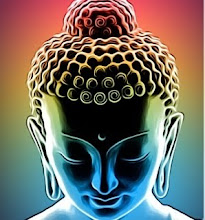Today is Vesak Day – the day popularly celebrated all over Asia as the Buddha’s birthday.
Today, Buddhists all over the world commemorate three great events: The birth, enlightenment and the passing away of Gautama Buddha. As Buddhism spread from India to all parts of the world, the teachings were readily assimilated with the cultures of the people who accepted the teachings. As a result, Buddhist art and culture took on a rich variety of forms with profound gentleness and kindness as the Buddha expressly forbade the use of force. The practice of Buddhism was adapted in many ways to suit the nature of the various cultures that accepted it. As a result of this, Vesak is celebrated in many different ways all over the world. But in essence many practices have become universal. This sacred day is purely a religious festival, and not a festive occasion. On this day all Buddhists are expected to reaffirm their faith in the Buddha Dhamma and to lead a noble religious life. It is a day for meditation and for radiating Loving-Kindness.
Today, devout Buddhists are expected to assemble in various temples before dawn for the ceremonial hoisting of the Buddhist flag and the singing of hymns in praise of the holy triple gem: The Buddha, The Dharma (his teachings), and The Sangha (his disciples). Devotees may bring simple offerings of flowers, candles and joss-sticks to lay at the feet of their teacher. These symbolic offerings are to remind followers that just as the beautiful flowers would wither away after a short while and the candles and joss-sticks would soon burn out, so too is life subject to decay and destruction. Devotees are enjoined to make a special effort to refrain from killing of any kind. They are encouraged to partake of vegetarian food for the day. In some countries, notably Sri Lanka, two days are set aside for the celebration of Vesak and all liquor shops and slaughter houses are closed by government decree during the two days. Birds and animals are also released by the thousands in a symbolic act to liberation, of giving freedom to those who are in captivity. However, it is not recommended that birds be released in the heart of crowded cities, because by doing so we may cause harm to the poor bewildered birds which are unable to fly far after a long period of captivity. Unscrupulous bird dealers would recapture such birds for resale to well meaning devotees. If birds are to be released it is recommended that this be done in rural areas where the birds can achieve real freedom. Some devout Buddhists will wear a simple white dress and spend the whole day in temples with renewed determination to observe the observance of the Eight Precepts.
On this day monks will recite verses uttered by the Buddha twenty-five centuries ago, to invoke peace and happiness for the Government and the people. Buddhists are reminded to live in harmony with people of other faiths and to respect the beliefs of other people as the Buddha had taught.
Celebrating Vesak also means making special efforts to bring happiness to the unfortunate like the aged, the handicapped and the sick. To this end, Buddhists will distribute gifts in cash and kind to various charitable homes throughout the country. Vesak is also a time for great joy and happiness. But this joy is expressed not by pandering to one’s appetites but by concentrating on useful activities such as decorating and illuminating temples, painting and creating exquisite scenes from the life of the Buddha for public dissemination. Devout Buddhists also vie with one another to provide refreshments and vegetarian food to devotees who visit the temple to pay homage to the Blessed One.
The Buddha himself has given invaluable advice on how to pay homage to him. Just before he died, he saw his faithful attendant Ananda, weeping. The Buddha advised him not to weep, but to understand the universal law that all compounded things (including even his own body) must disintegrate. He advised everyone not to cry over the disintegration of the physical body but to regard his teachings (The Dhamma) as their teacher from then on, because only the Dhamma truth is eternal and not subject to the law of change. He also stressed that the way to pay homage to him was not merely by offering flowers, incense, and lights, but by truly and sincerely striving to follow his teachings. This is how devotees are expected to celebrated Vesak: to use the opportunity to reiterate their determination to lead noble lives, to develop their minds, to practise loving-kindness and to bring peace and harmony to humanity.
From Wikipedia.
Subscribe to:
Post Comments (Atom)

No comments:
Post a Comment